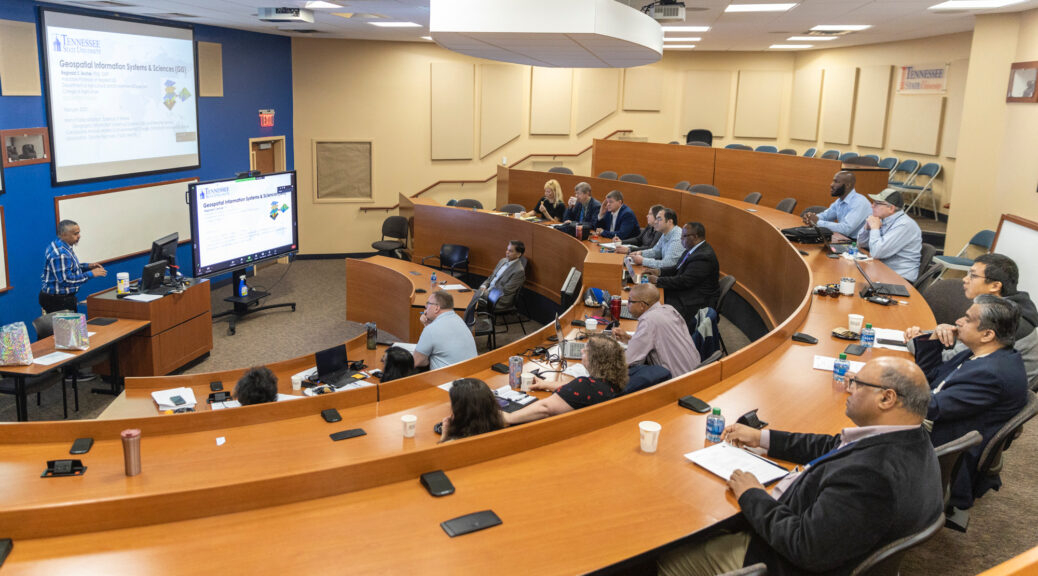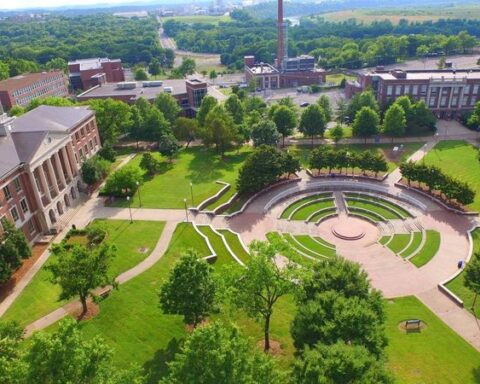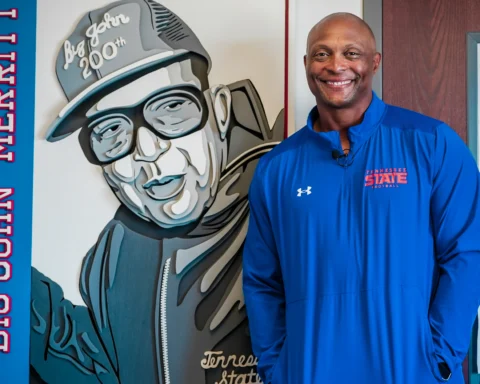By Alexis Clark
Tennessee State University’s College of Agriculture hosted a USDA Forest Service-Southern Research Station Senior Leadership event this week, as a pipeline for employment opportunities for environmental science students.
USDA Forest Service, Southern Research Station (SRS) visit this week was yet another opportunity to highlight the university’s ongoing commitment to research and becoming an “R1” designation under the Carnegie Classification of Institutions of Higher Learning.
During the event, the university and SRS determined how goals and objectives may align for mutually beneficial outcomes and discussed how to improve connectivity between TSU and SRS scientists. USDA Forest Service representatives presented information about their agency, while TSU faculty and graduate students presented their research findings, with the idea of collaborating and integrating research projects with SRS.
Dr. Chandra Reddy, Director of Research and Administrator of Extension in the College of Agriculture, said the goal is to further expand the scope of the Center of Excellence on Natural Resources, Renewable Energy, and Environment with assistance from the SRS team.
“SRS scientists conduct deep research in all aspects of the forestry with climate change filter,” Reddy said. “As we are building our capacity in environmental sciences, we want to build a strong partnership with the SRS team in training our graduate and undergraduate students, in addressing climate change concerns, and supporting the small forest landowners. We are very excited to host the leadership of the Southern Research Station of US Forest Service.”
SRS Director, Dr. Toral Patel-Weynand, highlighted their vision for increased collaboration. “We are working hard to make sure our workforce is inclusive and representative of the public we serve, a place where individuals can thrive and contribute to our collective success. We see places where TSU students can contribute to and gain experience from our research studies.”
HBCU Program Manager and Coordination Lead for SRS, Dr. Johnny Grace, said the Station, which is part of the nation’s largest forest research organization, is searching for ways to more effectively partner with TSU.
“We are attempting to connect with TSU students and faculty to develop a pipeline into our science programs and workforce,” Grace said.
While TSU scientists presented their lab work, a few graduate students studying agriculture presented their research as well.
Maria Schutte, a Dayton, Ohio native who is receiving her master’s degree from the environmental sciences program, said this opportunity will have more people involved in the forestry industry as the department of agricultural and environmental sciences is working towards being accredited for a forestry program.
“I think anything that helps us for research in a timely manner will help us get to R1,” Schutte said. “Having access to scientists through an established partnership to be able to set up projects will be great. It’s helping with our environmental sciences program, and I think this partnership will help us flush out environmental sciences as a major here.”
Robert Lee, former Deputy Program Manager for the SRS Forest Inventory and Analysis Program, said building positive relationships to enhance and sustain their nation’s forest ecosystems is one of the most important obligations to have. “This obligation also extends to promoting a diverse and inclusive workforce which are mutual goals of TSU and the Southern Research Station,” Lee said.
The TSU College of Agriculture is in the final stages of formalizing a partnership with the USDA Forest Service-Southern Research Station.





